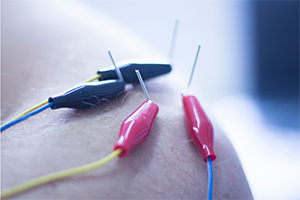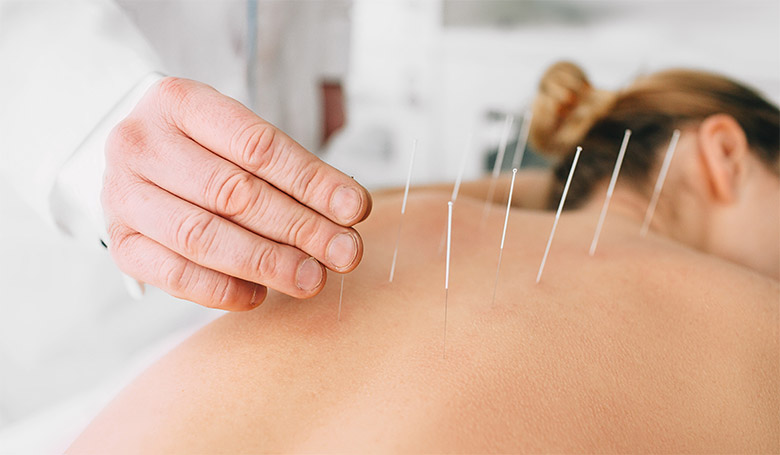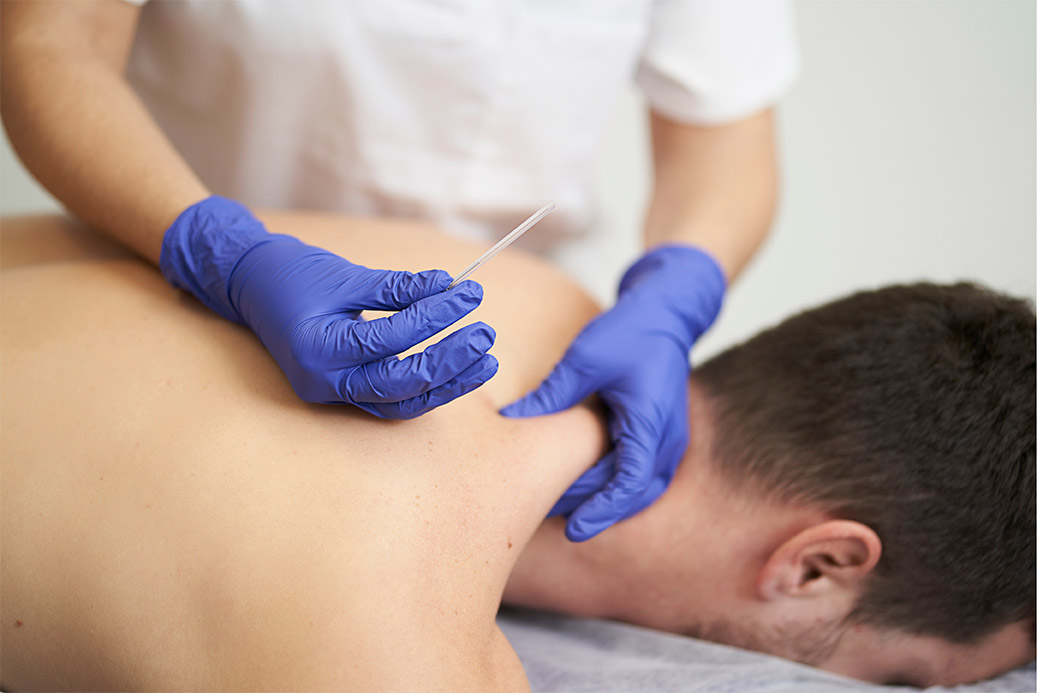Dry Needling
Don’t let muscle fatigue, tightness, or stiffness slow you down.
Often, these discomforts are overlooked until they worsen, impacting your daily life and leading to injuries. With our dry needling service, tackle these issues head-on and prevent them from becoming serious problems. Ensure your muscles are relaxed and healthy, so you can perform at your best every day without the worry of injury.
Dry Needling “Western Acupuncture”
It is a therapy used to relieve muscular pain, where thin needles are inserted into “trigger points” on the body. Unlike acupuncture, it targets specific muscle areas causing discomfort rather than energy flow points. The technique involves no medications, relying on needle placement to reduce inflammation and improve movement and function. While generally safe, it may cause soreness or bruising.
While the needles do indeed penetrate the skin, the procedure is typically reported as being minimally discomforting, and often the patient can feel immediate relief following the treatment. The exact mechanisms of dry needling are not known, but it is theorized that it helps to normalize biochemical and electrical dysfunction of motor endplates, which are the sites at which nerves interface with muscles. This could help speed up the patient’s return to active rehabilitation.


What is Acupuncture?
Acupuncture is a traditional Chinese medicine practice that involves inserting thin needles into specific points on the body to balance the flow of “qi” or life energy, believed to be essential for health. This technique aims to correct energy imbalances and stimulate the body’s natural healing processes. In modern medical terms, acupuncture is thought to stimulate the nervous system, prompting it to release natural painkillers and immune system enhancers. It’s widely used for pain relief and a variety of other health conditions.
The procedure is generally safe when done by trained professionals, though it can sometimes cause minor soreness or bruising. Effectiveness can vary, so it’s important to consult with a healthcare provider before beginning treatment.
Who would be benefit from Dry Needling & Acupuncture?
Dry needling & Acupuncture can benefit a variety of individuals, as both practices address different forms of discomfort and physiological issues, albeit through slightly different approaches and philosophies.Here’s who might find these therapies beneficial:
Individuals with Chronic Pain
Both acupuncture and dry needling are sought after for their ability to relieve various types of chronic pain, such as that from arthritis, fibromyalgia, or chronic migraines, by targeting specific points in the body related to pain perception and response.
Athletes
Athletes or individuals with active lifestyles might benefit from both practices as they can aid in faster recovery from muscular pain, improve flexibility, and assist in healing sports-related injuries. They can also be used as part of a comprehensive approach to performance enhancement and injury prevention.
Individuals with Stress and Anxiety
Acupuncture, in particular, is known for its potential to reduce stress and anxiety levels. It is believed to do this by regulating neurotransmitters and hormones, thus promoting a sense of well-being.
People Experiencing Sleep Disorders
Those suffering from insomnia or irregular sleep patterns may find acupuncture beneficial, as it is thought to have a positive effect on sleep quality by influencing neurotransmitters involved in sleep regulation.
Patients with Postoperative Pain
Individuals who have recently undergone surgery might benefit from acupuncture and dry needling, which can assist in pain management and potentially reduce the need for opioids or other pain relievers.
Those with Repetitive Strain Injuries
People experiencing pain from repetitive movements or overuse of particular muscle groups (like tennis elbow or carpal tunnel syndrome) might find relief through dry needling, as it targets muscular trigger points that contribute to pain.
Individuals with Headaches and Migraines
Both acupuncture and dry needling have been used to treat tension headaches and migraines, potentially reducing their frequency and severity.
Patients with Neurological Issues
Some evidence suggests acupuncture might benefit those with neurological issues like Parkinson’s disease, though more research is needed in this area.






